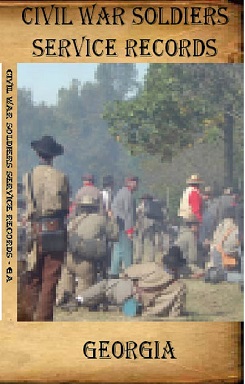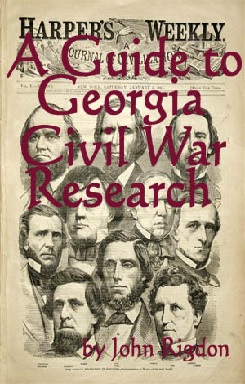Two Boys in the Civil War and After
by William Robert and M. B. Houghton
GA 2nd Infantry Regiment
Alabama 15th Infantry Regiment
William Robert Houghton was born in 1842 in Heard County, Georgia to Elizabeth Ann and William Henry Houghton. His father, William Henry was a lawyer and practiced in Georgia until he relocated to southern Alabama just before the Civil War. When the War began, William Robert enlisted with the Columbus Guards, which joined the Second Georgia Regiment as Company H, and stayed with them throughout the war. He fought in northern Virginia and at Chickamauga and Knoxville, and was seriously wounded at Malvern Hill and second Manassas. After the war William studied law and was admitted to the bar in 1866. He practiced in Hayneville, Alabama for many years. In 1875, he married Anna Streety, and together they had one son, Harry. Anna died in 1882, and in 1887 William moved to Birmingham, Alabama. He died in 1906, before the publication of Two Boys.
William Robert Houghton's younger brother, Mitchell Bennett Houghton was born ca. 1844-1845, in Heard County, Georgia. He was educated at Dover Academy, and at the start of the war joined the Glenville Guards of Barbour County, which later became Company H, of the Fifteenth Alabama regiment. He participated in Stonewall Jackson's campaign in the Shenandoah Valley, fought at second Manassas, Gettysburg, and Chickamauga, was captured at Lookout Mountain and spent sixteen months at Camp Morton where he nearly died from starvation and exposure. After the war, Mitchell became a businessman in Alabama, where he helped found a few banks, and became president of the State Bank of Montgomery. He lived in Montgomery for several years and was active in many political and trade organizations.
Mitchell and William Robert Houghton collaborated on their memoirs, Two Boys in the Civil War and After, which was published in 1911. William wrote most of the sections included in the book, but Mitchell also contributed his recollections. The book begins with a brief biography of William Robert Houghton. Mitchell's memoir covers his experiences in the war and describes the reconstruction era in the South. William's memoirs are more substantial and include details of his activities as a soldier, descriptions of reconstruction, and his reflections on the war upon visiting Gettysburg and Manassas in 1903. William describes various aspects of life in the Confederate military, his role in battles, and the quality of life in the soldiers' camps. He reflects on the South's struggle to reestablish itself after the war and comments on several issues that troubled the South at that time, including carpetbaggers, race relations, and northern rule.
Owen, Thomas McAdory, History of Alabama and Dictionary of Alabama Biography, vol. 3, Chicago: S. J. Clarke Printing Co., 1921.





